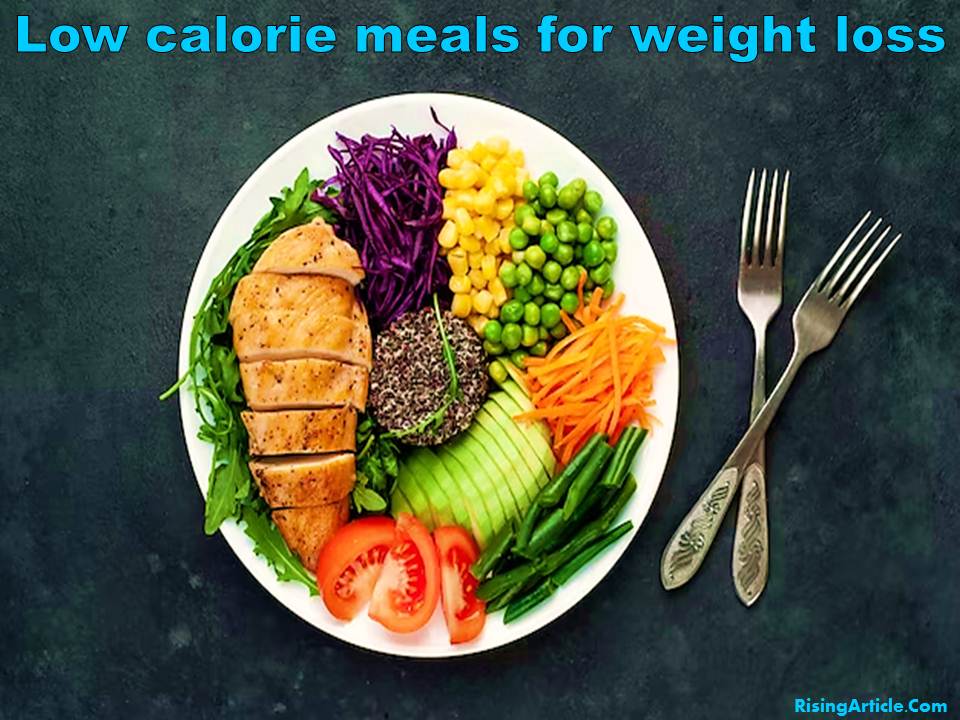Meal planning is becoming a game-changing tactic for reaching weight loss objectives in today’s fast-paced world, where busy schedules frequently leave us with little time for a healthy diet. This method, which focuses entirely on “Meal prepping for weight loss,” has grown in popularity as a methodical and effective approach to control food intake, encourage healthier eating habits, and lose those extra pounds.
This article Meal prepping for weight loss: Tips and Tricks will explore the art of meal prep, giving you the resources, information, and motivation you need to turn your weight loss goals into reality—whether you’re a fitness enthusiast, a working professional, or someone looking to start a weight loss journey. Together, we will examine the science, tactics, and delectable opportunities that meal prepping presents for achieving a happier, healthier you.
Meal prepping for weight loss ideas
 Meal planning for weight loss has become revolutionary in the hectic world of today. Focusing exclusively on “meal prep for weight loss,” this approach is becoming more and more well-liked as a clever, practical means of managing your dietary choices and losing those extra pounds.
Meal planning for weight loss has become revolutionary in the hectic world of today. Focusing exclusively on “meal prep for weight loss,” this approach is becoming more and more well-liked as a clever, practical means of managing your dietary choices and losing those extra pounds.
In this article – Meal prepping for weight loss will delve into the art of meal prep, giving you the knowledge and inspiration to make your goals a reality, whether you’re a fitness enthusiast, a busy professional, or just someone trying to lose weight. On your journey to a healthier you, learn about the science, tactics, and mouth-watering options that meal prep offers.
Meal prepping for weight loss
One of the best ways to lose weight is to prepare your meals in advance. Meal planning and control facilitate calorie restriction and ensure that you are eating a balanced diet. Meal planning for weight loss can be aided by the following advice:
It’s critical to establish your weight loss objectives before you begin meal planning. Establish reasonable and attainable goals for the amount of weight you wish to lose. You’ll be more motivated and focused if you have a clear objective.
Make a meal plan for the upcoming week. This covers snacks as well as breakfast, lunch, and dinner. When you plan, take your lifestyle and schedule into account. In case your schedule is hectic, choose light and portable meals.
Give foods high in nutrients and low in empty calories priority. Beans, turkey, fish, and chicken are good examples of lean proteins. Fiber and long-lasting energy are provided by whole grains like brown rice, quinoa, and whole wheat pasta. For vitamins and minerals, eat a lot of fruits and vegetables.
A calorie deficit is necessary for weight loss to be effective. In other words, you should eat less calories than you burn. To make sure you’re eating the right amount of calories for your goals, calculate your daily calorie needs and keep track of what you consume. For this, there are a number of apps and web resources available.
Managing portion sizes is essential. If you eat healthy foods in excess, you can gain weight from them as well. Using portion-controlled containers and measuring your food can help you avoid overindulging.
Purchase some excellent meal prep containers. These ought to be microwave-and dishwasher-safe, as well as airtight. It’s usually advised to reheat food in glass containers rather than plastic ones.
One way to save time is to cook in batches. Some dishes, such as roasted vegetables or grilled chicken, can be prepared in larger quantities and frozen for use in several meals over the course of the week. This lessens the time and work involved in preparing meals every day.
When you’re hungry in between meals, reaching for unhealthy snacks can be avoided by choosing healthy ones instead. Yogurt, precut fruits and vegetables, or a handful of nuts can all be filling and healthy snack options.
Try to get all three of the macronutrients from your meals. You can stay fuller and have a balanced diet with the help of protein, carbs, and healthy fats. For instance, grilled chicken (protein), brown rice (carbohydrates), and a side of broccoli (fiber and nutrients) could be the meal.
In addition to being beneficial for general health, adequate hydration can help reduce appetite. Occasionally, what seems to be hunger is really thirst, Throughout the day, make sure you consume enough water.
Food can be made more enjoyable by adding seasoning, To add flavor without packing on the calories, use herbs, spices, and healthful condiments. Your food will taste better as a result, which will help you follow your meal plan.
Don’t have the same meals all the time. Variety guarantees that you receive a broad spectrum of nutrients and also keeps you from becoming bored. To keep things interesting, try out various recipes.
Follow through on your meal preparation plan. Maintaining consistency is essential for long-term success. Make preparing meals a weekly ritual.
Mark the meal prep containers you use with the preparation date on the labels. Food waste is reduced as a result, and freshness checks are made simpler.
To record your food intake, physical activity, and progress toward weight loss, keeps a journal. You can then evaluate what is effective and modify your meal plan accordingly.
Speak with a registered dietician or other healthcare provider if you have any questions about meal preparation strategies that are ideal for you or your family, or if you have any specific dietary requirements. They are able to offer tailored advice and confirm that you are headed in the correct direction.
Keep in mind that meal planning is a tool to assist you in reaching your weight loss objectives, but it should be used in conjunction with a comprehensive strategy that includes consistent exercise and a healthy, sustainable diet. Long-term success in weight loss requires consistency during the gradual process.
Benefits of meal prepping for weight loss
 Planning your meals in advance is like having a secret weapon when it comes to losing weight. Meal planning for weight loss has the following clear-cut advantages:
Planning your meals in advance is like having a secret weapon when it comes to losing weight. Meal planning for weight loss has the following clear-cut advantages:
Portion sizes are under your control when meals are prepared ahead of time. This aids in calorie restriction and helps you stay away from overeating, both of which are essential for losing weight.
Eating regularly is aided by meal preparation. Having your weekly meals planned makes it simpler to stick to a schedule.
The hard work of cooking and preparation is already done, so you save time during the workweek. When you’re pressed for time, this can keep you from choosing fast food.
Purchasing food in large quantities and preparing meals at home is frequently more economical than eating out frequently.
When you’re hungry and exhausted, having prepared meals available lessens the temptation to reach for unhealthy snacks or place an order for takeout.
No more running around preparing meals at the last minute. Preparing your meals ahead of time lowers stress and facilitates healthier eating.
It is simpler to adhere to your weight loss plan when you can customize your meals to meet your unique dietary requirements.
You have the ability to prepare healthier meals by selecting wholesome ingredients and recipes. No more deciding on junk food at the last minute.
You won’t need to rely on willpower to make healthy decisions when you’re tired and hungry if you prepare your meals in advance.
It’s simpler to keep track of your caloric intake and modify your meals as necessary to reach your weight reduction objectives.
To put it briefly, meal prep is an important tool in your weight loss journey because it gives you the power to take control of what you eat. It makes things easier and positions you for success by encouraging consistency, portion control, and healthier options.
Conclusion:
To reach your weight loss objectives, meal preparation can be an effective strategy. It’s possible to make better decisions, manage portion sizes, and steer clear of impulsive, less nourishing choices when you plan and prepare your meals in advance. You can also maintain a well-balanced diet and stay on top of your calorie intake with its assistance.
But keep in mind that preparing meals is only a small portion of the picture. In order to achieve long-term weight loss success, it should be combined with consistent exercise and a healthy, balanced diet. Try meal planning and remember that maintaining a healthy lifestyle plays a major role in helping you lose weight.




